The White House opens investigation into Cecil’s death after petition exceeds 100,000 signatures
THE White House may extradite wealthy US dentist Walter Palmer as outrage grows over the brutal killing of Cecil the lion.
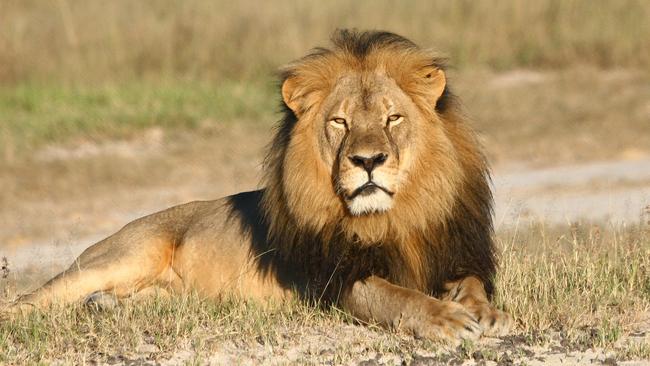
US authorities have opened an investigation into the killing of a beloved lion in Zimbabwe, as the American dentist who hunted the big cat remains in hiding amid mounting global outrage.
Earlier this month, trophy hunter dentist Walter Palmer killed Cecil the lion after the big cat was allegedly lured out of the Hwange National Park boundaries.
Since the kill, global outrage has been mounting, with protests staged daily outside the dentist’s office, and now, a petition to the White House to punish the hunter.
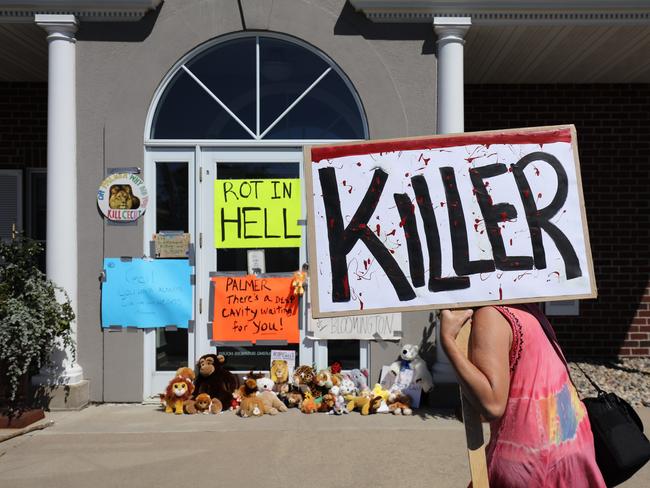
The petition, which urges Secretary of State John Kerry and Attorney General Loretta Lynch to extradite Dr Palmer to Zimbabwe to “face justice” for illegally killing the country’s “national icon” attracted more than 100,000 signatures — in one day.
At the time of this article, the number had reached more than 144,000 signatures.
According to White House policy, any petition that exceeds 100,000 signatures within 30 days requires a response from the government.
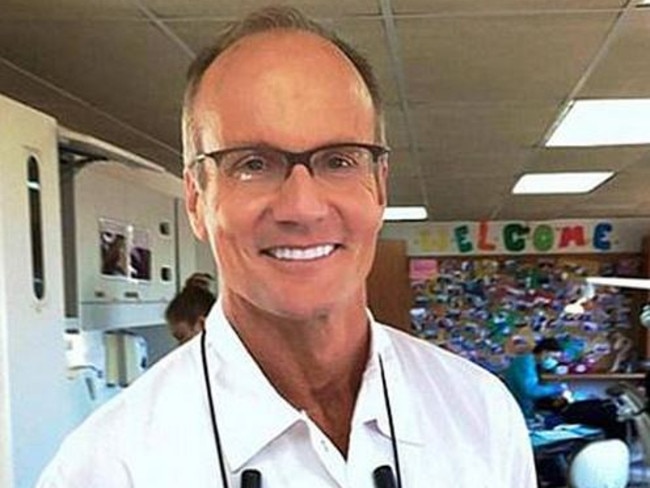
The US Fish and Wildlife Service said yesterday that it had opened a probe into the hunt.
“We’re investigating the killing of #CecilTheLion. Will go where facts lead. We ask Dr. Palmer or his rep to contact USFWS immediately,” the agency said on Twitter.
We're investigating the killing of #CecilTheLion. Will go where facts lead. We ask Dr. Palmer or his rep to contact USFWS immediately.
— US Fish and Wildlife (@USFWS) July 30, 2015We share your concern about the issue surrounding #CeciltheLion and we're working to gather the facts. pic.twitter.com/91odwh7oPv
— US Fish and Wildlife (@USFWS) July 29, 2015The service’s deputy chief of law enforcement, Edward Grace, said: “At this point in time, however, multiple efforts to contact Dr. Walter Palmer have been unsuccessful. We ask that Dr. Palmer or his representative contact us immediately”, according to CNN reports.
#CecilTheLion #CNN reporting Dr. Palmer seeking to cooperate. EZ to do. U or ur representative please contact #USFWS immediately.
— Dan Ashe (@DirectorDanAshe) July 30, 2015But Palmer continued to evade the public as crowds left plush toys of lions, tigers and monkeys at his River Bluff Dental practice in Minnesota.
A sign reading “Rot in Hell” was plastered on the office door. A Minnesota congresswoman joined calls to investigate the dentist, a seasoned hunter with a poaching conviction over the 2008 killing of a black bear in the United States.
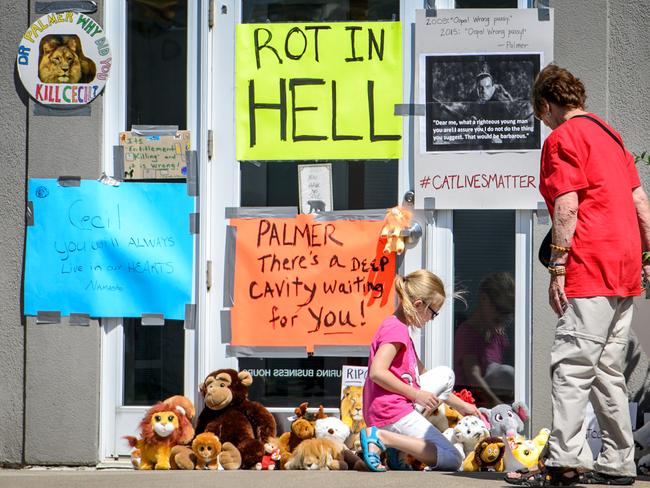
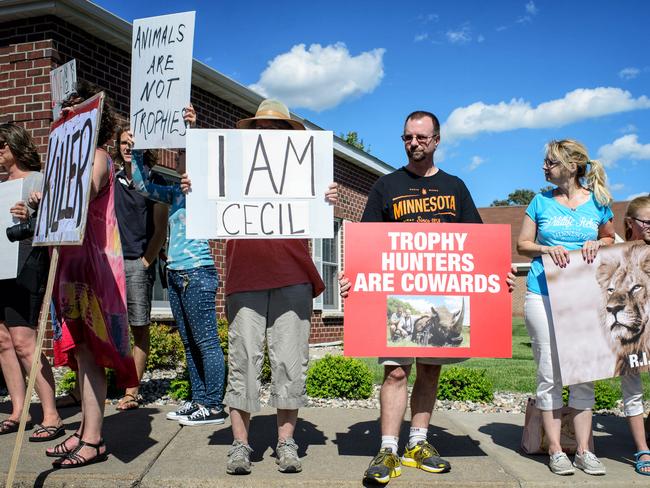
“To bait and kill a threatened animal, like this African lion, for sport cannot be called hunting, but rather a disgraceful display of callous cruelty,” Betty McCollum said on Wednesday.
She urged the US Attorney’s Office and the USFWS to “investigate whether US laws were violated related to conspiracy, bribery of foreign officials, and the illegal hunting of a protected species or animal.”
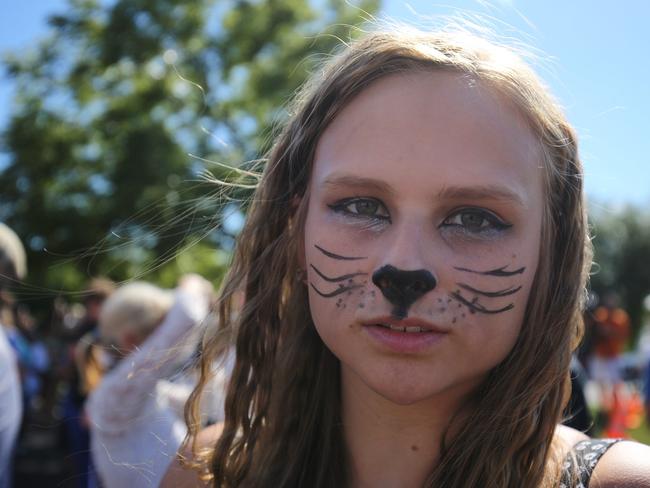
Meanwhile, Safari Club International, an international hunting organisation that Palmer belonged to, said it also supported a probe and that it had revoked his membership.
Cecil was a popular attraction among many international visitors to the Hwange National Park and was part of a University of Oxford research project.
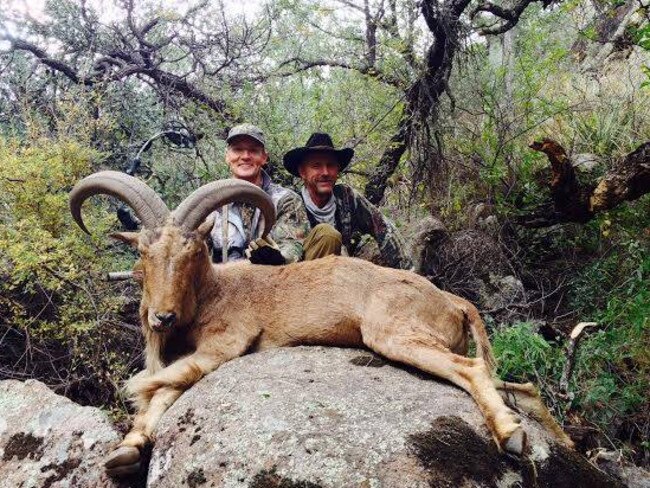
The beloved lion was apparently enticed to leave the park’s boundaries by bait and initially shot with a bow and arrow before Palmer and his guide tracked Cecil down and shot him dead with a gun some 40 hours later.
The professional Zimbabwean hunter who organised the hunt has been charged in Zimbabwe with “failing to prevent an illegal hunt.”
Theo Bronkhorst, wearing a green sleeveless jacket, was on Wednesday ordered to lodge a $US1,000 ($A1,363.05) deposit at the court in Hwange in north-western Zimbabwe after a day of negotiations between police, prosecutors and lawyers.
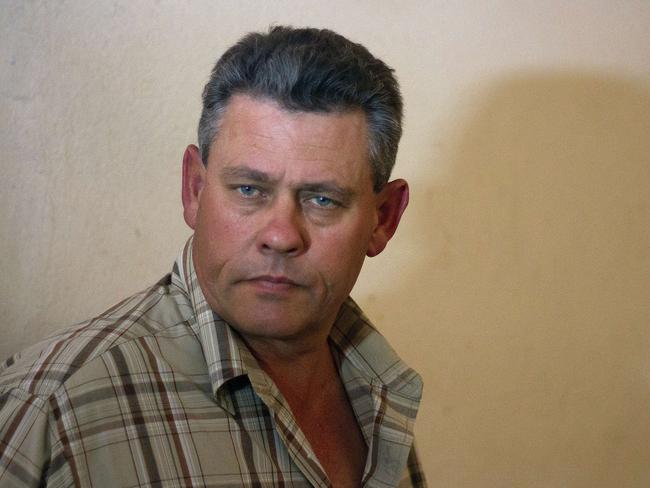
Co-accused Honest Ndlovu, a land owner, was scheduled to appear in court on Thursday on separate charges — for allowing the hunt to occur — but his hearing was delayed.
Palmer has since issued an apology to his patients, attempting to separate his hunting hobby from his profession as a dentist and pleading with his patients to understand that his presence in the news over the last few days has “nothing to do with my profession or the care I provide for you”.
UN pledges to combat wildlife trafficking
The Unites Nations General Assembly unanimously adopted its first-ever resolution aimed at combating illicit trafficking in wildlife yesterday as its sponsors expressed outrage at the killing of a beloved protected lion in Zimbabwe.
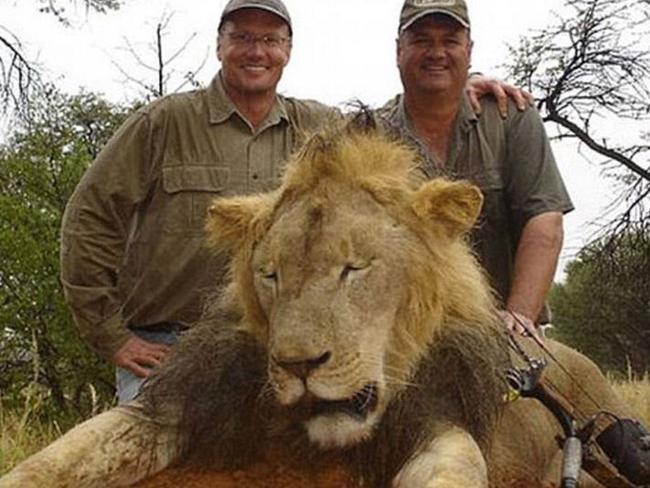
The resolution, approved by consensus by the 193-member world body, is not legally binding. But its universal support reflects growing global opposition to the escalating poaching and
trafficking, especially in elephant and rhinoceros horns, but also in other wild animals and plants.
It follows recent commitments by the United States and China, the world’s top market for illegal ivory, to end commercial ivory trading.
The resolution, sponsored by Gabon and Germany and co-sponsored by over 70 countries, urges all nations “to take decisive steps at the national level to prevent, combat and eradicate the illegal trade in wildlife, on both the supply and demand sides.”
Gabon’s Foreign Minister Emmanuel Issoze-Ngondet praised the adoption of the resolution, which is the product of more than two years of negotiations, as “a historic step.”
Germany’s UN Ambassador Harald Braun told reporters that illegal trafficking in wildlife has become a huge global business and the money made from it is now a leading source of financing terrorism around the world.
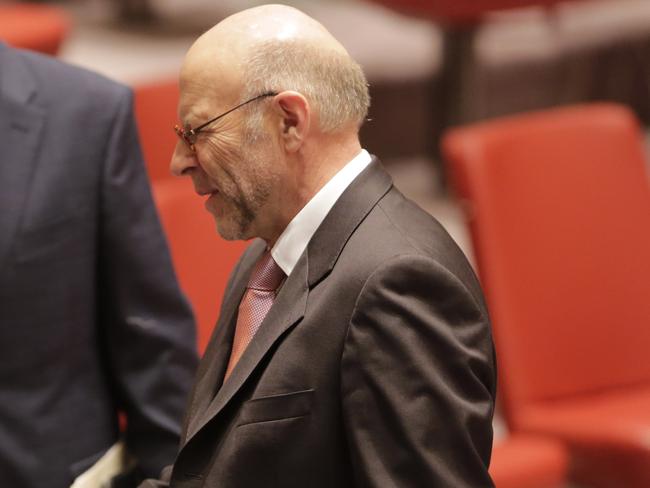
The sponsors were asked whether the resolution would have done anything to help save Cecil, the African lion that was reportedly lured out of a protected area and shot by an American hunter earlier this month.
“I think like most people in the world we are outraged at what happened to this poor lion,” Braun said. “Hunting activities are partly legal, partly illegal. It is this resolution which fights all the illegal aspects of it.”
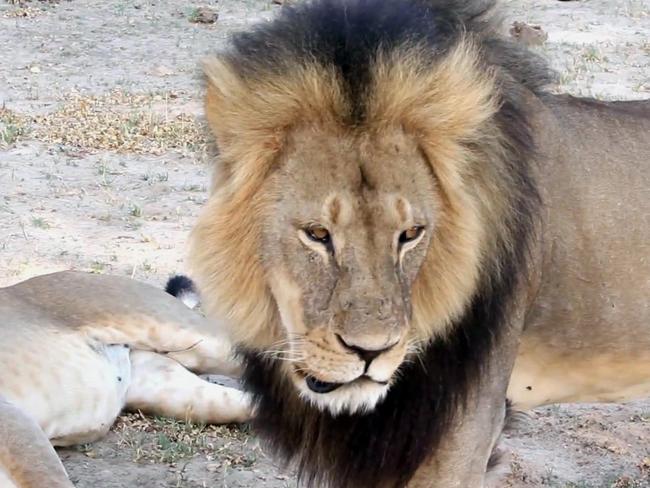
Issoze-Ngondet called the killing “a matter of deep concern for all countries in Africa” but said it was difficult to comment because Zimbabwe is conducting an investigation. He urged immediate implementation of the resolution to tackle “poaching, illegal trade and illegal killing of these kind of animals.”



